Credit: Paul Natkin/Getty Images
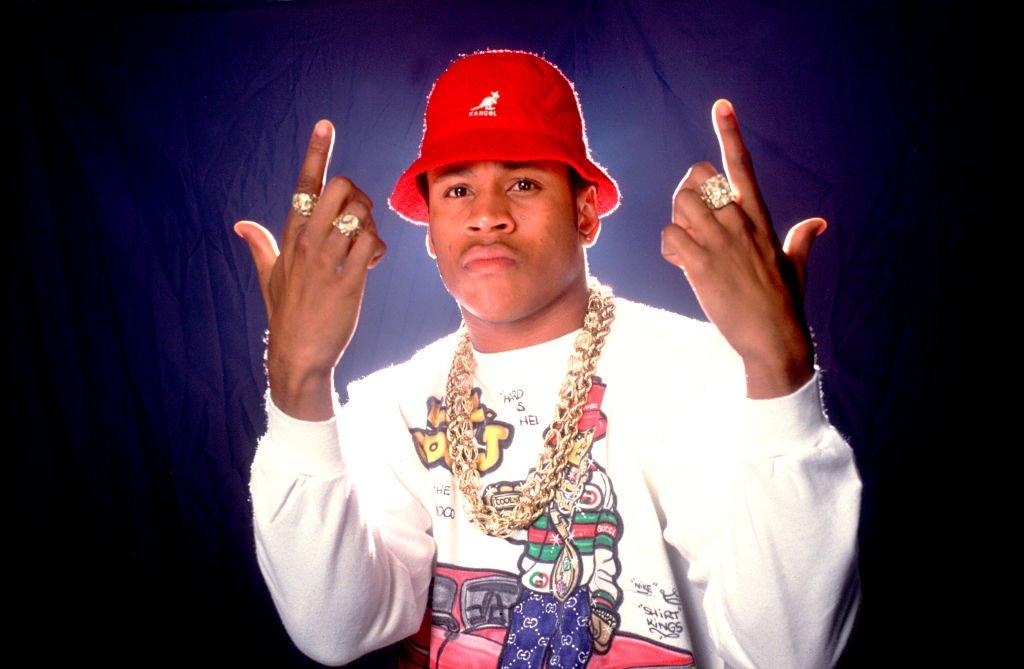
list
Celebrate 40 Years Of Def Jam With 15 Albums That Show Its Influence & Legacy
From the Beastie Boys' seminal 'License To Ill' and Jay-Z's 'Vol. 2… Hard Knock Life,' celebrate Def Jam with 15 of the label's essential albums.
This year marks the 40th anniversary of Def Jam Recordings, the New York label that made history in hip-hop, R&B, pop, and even thrash metal since its founding, and continues to do so today.
A label that began out of an NYU dorm room in 1984 quickly became an artistic (and business) powerhouse. Early acts like LL Cool J, the Beastie Boys, and Public Enemy were raw, adventurous, and risk-taking. Def Jam's roster opened new pathways in a still-young genre, seemingly every few months.
After that initial explosion, the label experienced a brief lull in the early 1990s when one label founder departed and the other expanded into fashion and comedy. Def Jam came roaring back beginning in 1994, and by 1998 the label was home to some of the most popular and influential artists in the game — including burgeoning megastars DMX and Jay-Z. To this day, Def Jam maintains a roster of both commercially successful and critically beloved artists in hip-hop, R&B, and pop.
To commemorate the anniversary of the label that gave us, well, pretty much everyone, here’s a list of 15 of Def Jam’s essential releases. While Def Jam brought audiences plenty of singles, EPs and remixes, this list primarily focuses on albums. Each project has a mix of artistic merit, popularity, influence and longevity, originality, and played a key role in the story of Def Jam as a whole. Think of it as a chronological run through the key albums that built one of the most lasting labels in modern music.
And finally: it must be said that in recent years, a dark shadow has begun to loom over Def Jam’s legacy. Label co-founder Russell Simmons been accused over the past seven years of numerous instances of sexual assault, dating back decades. In spite of these accusations, the label (in which Simmons hasn’t been involved for a quarter-century) remains on top, safeguarding its valuable archive while looking forward to another four decade run as fruitful as the first one.
T La Rock & Jazzy Jay - "It’s Yours" (1984)
The one single on this list is also the first piece of music ever released with the now-famous Def Jam logo. "It’s Yours" was a single produced by Def Jam co-founder Rick Rubin — his very first hip-hop production. Instrumentally, it was perhaps only comparable to Larry Smith and Def Jam co-founder Russell Simmons’ contemporaneous work with Run-D.M.C. Both "It’s Yours" and D.M.C.’s early work were severely stripped-down, consisting of a few drum sounds, an instrumental stab, and some scratches.
Lyrically, though, "It’s Yours" is worlds apart from "Sucker M.C.’s" — or pretty much anything else going on in hip-hop at the time. T La Rock, the brother of Treacherous Three member Special K, came from a family of educators, and he put every ounce of his erudition into the track. It begins, "Commentating, illustrating/ Description giving, adjective expert" and goes from there.
LL Cool J - 'Radio' (1985)
In the early 1980s, the state of the hip-hop album was very grim. Only a few existed, and they almost exclusively consisted of a few singles mixed with often-confusing filler. Two things changed that. First, Run-D.M.C.’s 1984 self-titled debut, which GRAMMY.com examined in depth a few months ago. Second was LL Cool J’s debut album Radio, the very first full-length album Def Jam ever released.
In many ways, Radio kicked off hip-hop’s Golden Age. The record shows LL, then still in his teens, as a versatile artist who can be boastful, funny, aggressive, lyrical. The album shows many different sides of his personality, and helped set the template for what a rap album could be.
Read more: 20 Iconic Hip-Hop Style Moments: From Run-D.M.C. To Runways
Beastie Boys - 'Licensed to Ill' (1986)
The Beasties would release more complex and enlightened albums than Licensed to Ill, and one of the members would eventually apologize for some of its lyrics. But there’s no denying that it was a smash hit. It was the first rap album to ever top the Billboard 200, got the group onstage with Madonna, and would eventually sell over 10 million copies.
Was some of that success due to their race? Sure. They were a credible group, signed to a hot rap label, at a time when it was still novel for white people to be performers in hip-hop. And yet, that’s not the whole story.
Licensed to Ill is a catchy, unique, energetic album, and the group members show undeniable chemistry. To this day, shout-filled, guitar-heavy anthems like "No Sleep till Brooklyn" and the ubiquitous "Fight for Your Right" can still get the party started.
Read more: The Beastie Boys Provide A License To Party
Public Enemy - 'It Takes a Nation of Millions to Hold Us Back' (1988)
There’s not too much you can say about this album that hasn’t already been said in the years of books, conferences, academic papers, and deluxe re-issues. It has ended up at or near the top of many all-time best lists. Its abrasive, collage-like approach to composition was never equalled (and, in light of current laws and practices around sampling, can never even be approached). The comic stylings of Flavor Flav bring just the right amount of levity to balance Chuck D’s takes on life-and-death issues.
Decades after its release, the album still sounds urgent. And sadly, in an America still roiled with tensions over race, incarceration, drugs, and the media, its concerns remain as relevant as ever.
Read more: 5 Things We Learned At "An Evening With Chuck D" At The GRAMMY Museum
Slick Rick - 'The Great Adventures of Slick Rick' (1988)
Slick Rick is the ultimate rap storyteller, and his debut album is the best example of his artistry. "I wrote them like an essay," Rick once said of creating the batch of songs that make up Great Adventures. He also compared it to doing stand-up. So you have exactly what those two reference points imply: stories that are well-constructed, and also frequently riotously funny.
Rick is the master of the telling detail (remember "Dave, the dope fiend shooting dope/ Who don’t know the meaning of water nor soap" from "Children’s Story"?), the humorous twist, the morality tale, the bedtime story, the character voice. His influence lives on in perhaps his most devoted protege, Ghostface Killah, as well as in any rapper who has tried to craft a song with a beginning, middle, and end.
Learn more: Essential Hip-Hop Releases From The 1980s: Slick Rick, RUN-D.M.C., De La Soul & More
Warren G - 'Regulate… G Funk Era'(1994)
A bit of an edge case here, as technically the record was put out by Violator Records and Rush Associated Labels, the latter of which was a sort of umbrella organization Def Jam ran in the mid-1990s. Many albums that could have made this list, including projects by Redman, Onyx, Domino, and Nice & Smooth, were released under the RAL banner. But Warren G’s debut, a giant hit in an era where Def Jam really needed it, became inextricably associated with the label, to the point where an article about the album on Universal Music’s website mentions Def Jam five times in the first two paragraphs.
Regulate is a pop-savvy take on the G-funk sound that was then ascendant. It was a huge success in a year that saw the introduction of tons of amazing rappers into the game. And Warren G being associated with Def Jam meant that the East Coast-centric label had expanded its geographic footprint.
Foxy Brown - 'Ill Na Na' (1996)
Def Jam wasn’t always a friendly place for female artists (despite many of the most important employees being women, including one-time president Nana Ashhurst). In fact, the label didn’t release a rap album by a woman until Nikki D’s Daddy’s Little Girl in 1991. So Foxy Brown’s impact — on Def Jam and on the rap world as a whole — cannot be overstated. Ill Na Na was an album that changed everything for female rappers. It had songs for the clubs, the block, and the radio. Foxy’s sexuality, versatility, and first-class rhyming would have an influence on countless rappers, most famously her number one fan Nicki Minaj, who has been effusively praising Foxy for more than a decade.
Read more: Ladies First: 10 Essential Albums By Female Rappers
DMX - 'It’s Dark and Hell Is Hot' (1998)
No less an authority than Nas referred to 1998 as "The year DMX took over the world." It’s Dark and Hell Is Hot is how he did it. The album set fire to Bad Boy’s so-called "shiny suit era" by embodying its polar opposite: a dark, grimy vision full of gothic synths; raspy, full-throated lyrics; and, sometimes, actual barks. Without DMX, there’s no NYC street rap return: no G-Unit mixtape run, no Diplomats.
The record is consistent and captivating from start to finish, and its thematic centerpiece comes, appropriately, about halfway through with "Damien," which reminds all of us that the most difficult battles we fight are the ones with ourselves.
Jay-Z - 'Vol. 2… Hard Knock Life' (1998)
Jay-Z has made more critically beloved albums than Vol. 2 (Reasonable Doubt and The Blueprint both fall in that category). He has made albums with bigger hits (The Blueprint 3 had a No. 1 hit with "Empire State of Mind"). But he has never made a more important LP.
Vol. 2 was the album that made Jay a superstar. Its Annie-sampling title track (produced by the late 45 King) sent him to the stratosphere — a process he actually documented on his follow-up album. But the record wasn’t just a commercial novelty. It showed Jay at the absolute top of his game: cocky, funny, and brilliant. Case in point: his novel approach to storytelling in "Coming of Age (Da Sequel)," where all the important action takes place in just a few seconds, inside the characters’ heads.
Read more: Songbook: How Jay-Z Created The 'Blueprint' For Rap's Greatest Of All Time
Ludacris - 'Word of Mouf' (2001)
Around the turn of the millennium, Def Jam had its sights set on conquering new territory. Specifically, the South. So they set up Def Jam South and hired Scarface to head it up. The entity’s biggest success came from an Atlanta DJ who went by Chris Luva Luva on the air, but began rapping as Ludacris.
Word of Mouf was Luda’s second album, but it was the one that really cemented his stardom with songs like "Rollout (My Business)," "Area Codes," and the immortal "Move Bitch" (the last of which has had an artist-approved second life as a protest chant). The album proved that the South was here to stay, and that Def Jam would have a role in determining its hip-hop future.
Learn more: A Guide To Southern Hip-Hop: Definitive Releases, Artists & Subgenres From The Dirty South
Scarface - 'The Fix' (2002)
Speaking of Scarface and Def Jam South, Face had no intention of dropping music while running the label. But, in his telling, Def Jam exec Lyor Cohen insisted on it, paying handsomely for the privilege.
"There were so many things working in my favor on that album," Scarface wrote in his memoir Diary of a Madman. "For the first time, I was working on an album for a label that believed in me 100 percent and didn’t want anything from me except for me to make the dopest album I could possibly make. And they went out of their way to make that possible."
Def Jam’s history of putting out classics inspired Face on The Fix, he writes in that book. And in the end, the album stands up there with any of them. It is one of only a small handful of rap records to earn a perfect five-mic rating from The Source, and it belongs in that rarified air with projects like Illmatic and Aquemini.
Kanye West - 'The College Dropout' (2004)
Yes, today Kanye West is the worst: a Hitler-loving, Trump-supporting, paranoid, antichoice, antisemite who stands accused of sexual harrassment. But two decades ago, the world met a Mr. West who at least seemed very different.
The College Dropout presented an artist who was already extremely well-known as a beatmaker. But Kanye’s carefully crafted persona as the bridge between mainstream rap and the underground — "First n— with a Benz and a backpack," as he put it — meant that he appealed to pretty much everyone. The College Dropout wasn't West at the top of his rap game, but it did show his skill at developing song concepts, at beats, and at creating an artistic vision so powerful, and so relatable, that it captivated an entire generation.
Cam’ron - 'Purple Haze' (2004)
It’s impossible to talk about Def Jam without discussing Roc-A-Fella. Jay-Z’s label hooked up with Def Jam in 1997, and had a years-long hot streak with artists like Kanye, Beanie Sigel, Freeway, the Young Gunz, and of course Cam’ron’s Diplomats crew — Cam, Juelz Santana, and the overall group all released projects there.
Purple Haze came at the very tail end of Roc-a-fella’s golden age. It has Cam at the absolute peak of his absurdist rhyming powers, keeping computers ‘puting and knocking out eight-syllable multis about Paris Hilton like it was nothing. During the Purple Haze era, it was Cam’s world, and we were all just lucky to be living in it.
Rihanna - 'Good Girl Gone Bad' (2007)
Rihanna’s first two projects were full of Caribbean sounds and ballads. But when her third album came along, she needed a change. Riri wanted to go "uptempo," and history shows that was the right choice. Good Girl Gone Bad began the singer’s transformation into the megastar we know today. It spawned five singles and two separate quickie tie-in albums (Good Girl Gone Bad: Reloaded and Good Girl Gone Bad: The Remixes).
"Umbrella" was the way forward. Rihanna had a No. 1 record prior, but she’d never made a sensation like this. The song (with a guest verse by then-Def Jam president Jay-Z) not only made it to the top slot, it also won a GRAMMY and was undeniably the song of the summer. The album also contained the sensation "Don’t Stop the Music," a track that kickstarted the EDM/pop hybrid that dominated the late aughts. Without Good Girl Gone Bad, it’s safe to say we’d be living in a very different, Fenty-less world.
Frank Ocean - 'Channel Orange' (2012)
One could fill a whole blurb about Channel Orange simply by quoting the extreme praise it received. "A singular achievement in popular culture." "Landed with the crash and curiousness of a meteor." Two days after its release, Pitchfork was already saying that it "feels like a classic."
And yet, somehow even that kind of acclaim doesn’t do the album justice. You really had to be there when it came out, when Frank looked into his soul and, in doing so, connected deeply with so many listeners
Read more: Frank Ocean Essentials: 10 Songs That Embody The Elusive Icon's R&B Genius
"Channel Orange is the most concentrated version of 2012 in 2012 so far," wrote Sasha Frere-Jones at the time, in one of the most dead-on statements about the album. It expressed the contradictions we all lived in. Its fragmentation mirrored the social media that was beginning to take over all of our lives. Ocean left bits of his biography scattered throughout the album, but they almost didn’t matter. He was speaking for all of us, in the way only great artists can.
A Guide To New York Hip-Hop: Unpacking The Sound Of Rap's Birthplace From The Bronx To Staten Island
PRIDE & Black Music Month: Celebrating LGBTQIA+ & Black Voices
Listen To GRAMMY.com's 2024 Pride Month Playlist Of Rising LGBTQIA+ Artists
9 New Pride Anthems For 2024: Sabrina Carpenter's "Espresso," Chappell Roan's "Casual" & More
What's The Future For Black Artists In Country Music? Breland, Reyna Roberts & More Sound Off
Why Beyoncé Is One Of The Most Influential Women In Music History | Run The World
9 Ways To Support Black Musicians & Creators Year-Round
How Beyoncé Is Honoring Black Music History With 'Cowboy Carter,' "Texas Hold Em," 'Renaissance' & More
The Evolution Of The Queer Anthem: From Judy Garland To Lady Gaga & Lil Nas X
15 LGBTQIA+ Artists Performing At 2024 Summer Festivals
50 Artists Who Changed Rap: Jay-Z, The Notorious B.I.G., Dr. Dre, Nicki Minaj, Kendrick Lamar, Eminem & More
Fight The Power: 11 Powerful Protest Songs Advocating For Racial Justice

How Rihanna Uses Her Superstardom To Champion Diversity | Black Sounds Beautiful

How Beyoncé Has Empowered The Black Community Across Her Music And Art | Black Sounds Beautiful
5 Women Essential To Rap: Cardi B, Lil' Kim, MC Lyte, Sylvia Robinson & Tierra Whack
Celebrate 40 Years Of Def Jam With 15 Albums That Show Its Influence & Legacy

Watch Frank Ocean Win Best Urban Contemporary Album At The 2013 GRAMMYs | GRAMMY Rewind
A Brief History Of Black Country Music: 11 Important Tracks From DeFord Bailey, Kane Brown & More
10 Women In African Hip-Hop You Should Know: SGaWD, Nadai Nakai, Sho Madjozi & More
10 Artists Shaping Contemporary Reggae: Samory I, Lila Iké, Iotosh & Others
The Rise Of The Queer Pop Star In The 2010s
How Sam Smith's 'In The Lonely Hour' Became An LGBTQIA+ Trailblazer
How Queer Country Artists Are Creating Space For Inclusive Stories In The Genre

How Jay-Z Became The Blueprint For Hip-Hop Success | Black Sounds Beautiful

How Kendrick Lamar Became A Rap Icon | Black Sounds Beautiful
Dyana Williams On Why Black Music Month Is Not Just A Celebration, But A Call For Respect
6 LGBTQIA+ Latinx Artists You Need To Know: María Becerra, Blue Rojo & More
7 LGBTQ+ Connections In The Beatles' Story
Breaking Down Normani's Journey To 'Dopamine': How Her Debut Album Showcases Resilience & Star Power
10 Alté Artists To Know: Odunsi (The Engine), TeeZee, Lady Donli & More

Celebrating Black Fashion At The GRAMMYs Throughout The Decades | Black Music Month
FLETCHER Is "F—ing Unhinged" & Proud Of It On 'In Search Of The Antidote'
For Laura Jane Grace, Record Cycles Can Be A 'Hole In My Head' — And She's OK With That
15 Essential Afrorock Songs: From The Funkees To Mdou Moctar
50 Years In, "The Wiz" Remains An Inspiration: How A New Recording Repaves The Yellow Brick Road
Why Macklemore & Ryan Lewis' "Same Love" Was One Of The 2010s' Most Important LGBTQ+ Anthems — And How It's Still Impactful 10 Years On
Songbook: The Complete Guide To The Albums, Visuals & Performances That Made Beyoncé A Cultural Force

Why Cardi B Is A Beacon Of Black Excellence | Black Sounds Beautiful
Queer Christian Artists Keep The Faith: How LGBTQ+ Musicians Are Redefining Praise Music
9 Revolutionary Rap Albums To Know: From Kendrick Lamar, Black Star, EarthGang & More
9 "RuPaul's Drag Race" Queens With Musical Second Acts: From Shea Couleé To Trixie Mattel & Willam
5 Black Artists Rewriting Country Music: Mickey Guyton, Kane Brown, Jimmie Allen, Brittney Spencer & Willie Jones
How 1994 Changed The Game For Hip-Hop

How Whitney Houston’s Groundbreaking Legacy Has Endured | Black Sounds Beautiful
LGBTQIA+-Owned Venues To Support Now

Celebrate The Genius Of Prince | Black Sounds Beautiful

Explore The Colorful, Inclusive World Of Sylvester's 'Step II' | For The Record
Black-Owned Music Venues To Support Now
5 Artists Fighting For Social Justice Today: Megan Thee Stallion, Noname, H.E.R., Jay-Z & Alicia Keys
Artists Who Define Afrofuturism In Music: Sun Ra, Flying Lotus, Janelle Monae, Shabaka Hutchings & More
5 Trans & Nonbinary Artists Reshaping Electronic Music: RUI HO, Kìzis, Octo Octa, Tygapaw & Ariel Zetina
From 'Shaft' To 'Waiting To Exhale': 5 Essential Black Film Soundtracks & Their Impact
5 Emerging Artists Pushing Electronic Music Forward: Moore Kismet, TSHA, Doechii & Others
5 Artists Essential to Contemporary Soca: Machel Montano, Patrice Roberts, Voice, Skinny Fabulous, Kes The Band

How Quincy Jones' Record-Setting, Multi-Faceted Career Shaped Black Music On A Global Scale | Black Sounds Beautiful
5 Black Composers Who Transformed Classical Music
Brooke Eden On Advancing LGBTQ+ Visibility In Country Music & Why She's "Got No Choice" But To Be Herself
Let Me Play The Answers: 8 Jazz Artists Honoring Black Geniuses
Women And Gender-Expansive Jazz Musicians Face Constant Indignities. This Mentorship Organization Is Tackling The Problem From All Angles.

Histories: From The Yard To The GRAMMYs, How HBCUs Have Impacted Music
How HBCU Marching Band Aristocrat Of Bands Made History At The 2023 GRAMMYs
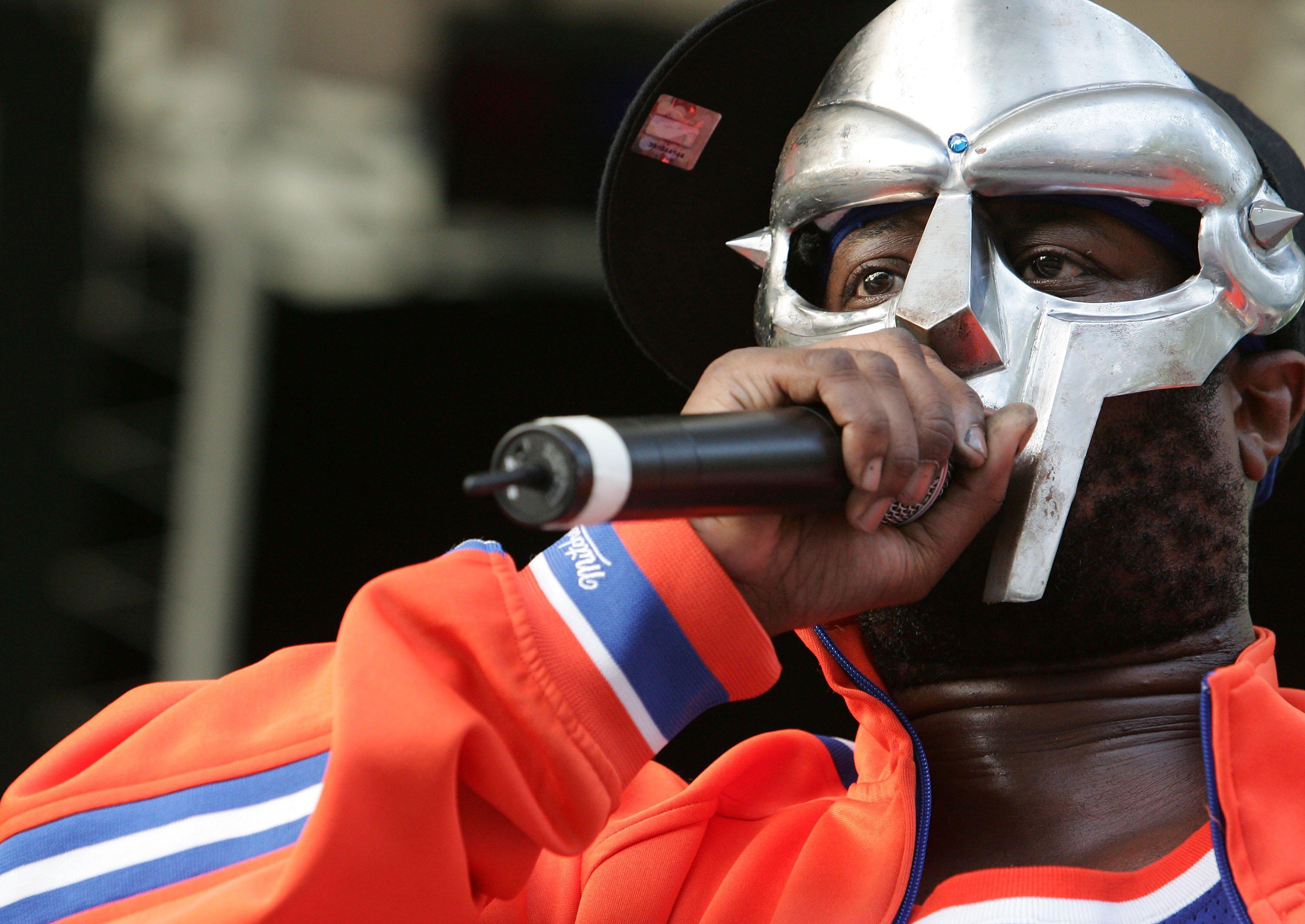
Photo: Peter Kramer/Getty Images
list
10 Facts About MF DOOM's 'Mm.Food': From Special Herbs To OG Cover Art
Released in 2004, 'Mm..Food' is both bizarre and the late rapper's most commercially successful project. With a deluxe 20th anniversary edition out now, read on for a few choice cookies that made 'Mm..Food' a recipe for success.
MF DOOM has been gone for more than four years now, but the mysterious masked rapper’s legacy lives on. Since his passing in 2020 at age 49, podcasts and books have traced his life, while innumerable tributes in song and memorial sets at major festivals have highlighted the rapper's legacy. Now, there’s a revamped look at one of his most popular projects.
A deluxe 20th anniversary edition of DOOM’s 2004 album Mm..Food was released on Nov. 15 by Rhymesayers Entertainment and Metalface Records. It features previously hard-to-find remixes, including one by Madlib, as well as interview clips. There are also vinyl, CD, and cassette versions with extra goodies.
Mm..Food is notable for many reasons. It is both bizarre even by DOOM’s eccentric standards (this is, after all, the guy who rapped an entire album as a Godzilla villain), and was also arguably his most commercially successful project, with multiple successful singles and even a gold certification.
It also has quite a history. Below are 10 fun facts you may not know about Mm..Food. And no, we don’t count the fact that the title is an anagram for MF DOOM’s name — consider that a bonus.
Every Song Has A Double Meaning
The album’s title is a clue to its major conceit: the songs are food (or sometimes drink) themed. But things aren’t always as they seem, especially with a supervillain.
"It had to be two things: It had to be a food people could relate to and there had to be another play on the word," DOOM explained to XXL. "So it's about finding a word where you can take two different approaches to it."
The idea was that, in addition to the surface explanation, there would be a second meaning for each song relevant either to hip-hop or to society at large.
"Food is nourishment," DOOM said. "And this is nourishment on a hip-hop level."
Mm..Food Gave DOOM His Only Platinum Single
MF DOOM has two certified gold albums — this record and his Madlib collaboration Madvillainy. Both reached that status just this year. But Mm..Food has two gold singles, "One Beer" and "Hoe Cakes."
Even more remarkably, the album also has a platinum one, DOOM’s only million-seller: "Rapp Snitch Knishes."
"Kookies" Had A Different Beat…And Contains A Surprising Second Meaning
The original beat for "Kookies," which appeared on initial pressings of the album (and is now billed as a remix), was produced by Just Blaze. The reason it was removed? It contained an unlicensed sample from a "Sesame Street" record that the producer got when he was six years old. Just tells the entire, very charming, story here.
Per the album’s dual-meaning conceit, the song isn’t just about the kind of cookies you eat, DOOM explained in an interview that took place in 2004.
"‘Kookies’ is ill, totally on some Internet porn type s—," he told writer Luke Fox. "I notice when you online on some porn s—, the word cookies comes up. Oh, I guess that's the picture as it saves to your hard drive. They call those cookies. So, I got a fever for them cookies. I'm a cookie monster, trying to go into the cookie jar.
"So, on the surface the song sounds like I'm talking about regular cookies," DOOM continued, "but there's little innuendos that'll let you know."
The Album Came With A Bonus Disk & Recipe
A bonus CD called, appropriately, Mm..LeftOvers was given away with some copies of the album. On the record are several remixes that have been repurposed for the Mm..Food 20th anniversary reissue. It also contains one of this writer’s favorite DOOM duets, the hilarious "Hot Guacamole" with MC Paul Barman. ("What type of ill type of ill tricks do the mask do?" Barman asks. "The faceplate remove, and I give chicks tattoo," DOOM responds.)
In addition to music, the bonus disc comes with a bonus recipe from the artist himself, for "Villainous Mac & Cheeze." If you want to make the dish, you can find the recipe here.
DOOM Asked For A Surprising Change To The Cover Art
Mm..Food’s cover shows a cartoon DOOM at a table, eating breakfast. But artist Jason Jägel’s original cover had one major difference from the version we’ve come to know and love: it showed the rapper smoking a blunt.
Once the drawing came in, art director Jeff Jank got a request to remove the blunt. The ask didn’t come from the record label, or a nervous manager. Instead, it came directly from DOOM himself.
A Number Of The Beats Are Special Herbs
A lot of the music on Mm..Food is familiar to die-hard DOOM fans, because the beats appear with different titles on his Special Herbs series of instrumental albums. For example, Special Herbs, Vol. 4, 5 & 6, released a full year before Mm..Food, contains three beats that would show up on the album.
It Has The Riskiest Stretch Of Any DOOM Album
Every review of Mm..Food complains about the long string of four consecutive skits that sits right in the middle of the album. Pitchfork, for example, called it "a nasty rut that makes Mm..Food? pretty much unplayable front-to-back after the first few spins."
Certainly, DOOM was aware that taking a full six and a half minutes in the middle of his LP to devote to skits might not be a popular decision — but he proceeded anyway. Audiences are left with a brilliant audio collage that advances his character’s narrative, ties into the themes of the album and gives nostalgic glimpses into his childhood via its samples, including The Electric Company.
The Album Inspired A Cookbook
Appropriately, a food-themed rap album inspired an actual cookbook. Bushwick Grill Club put together Mm..Food — The Recipes. It features spicy beef lettuce wraps (because of the album’s "Beef Rapp"), chopped cheese knishes (for "Rapp Snitch Knishes"), and more.
Illustrated by Cassady Benson and written by food industry vet Frank Davis, the cookbook is "about taking an album where DOOM laid out a 15-dish menu and turning that motherf—er into a recipe zine," Davis wrote.
It Introduces A Different Comics-Inspired Alter Ego.
DOOM, of course, took his supervillain character from Doctor Doom. But on Mm..Food he inspired a friend to adopt a comic character personality as well. Rapper Stahhr appears on the song "Guinnessez" as "Angelika," a personality named for Angelica Jones, a.k.a. Firestar, from Spider-Man and His Amazing Friends.
"I didn’t know that I was going to be named Angelika on the song," Stahhr told Complex. "DOOM called me one day and said, ‘Yo, I had this dream, you were flying, you had these blue lasers shooting out of your eyes. That’s your energy, really powerful, I want you to look [Firestar] up.’ I went to the comic book store, I bought all the comics about Firestar and I read them, like, ‘This is exactly me.’"
The Album Led To DOOM’s First National Tour
Amazingly for an artist who put out his first single under the MF DOOM moniker in 1997, it took until the Mm...Food album cycle for DOOM to mount a nationwide tour. The trek, with opener Brother Ali, took the villain from coast to coast.
He kept the album’s culinary theme going even on the road, as a canned food drive was set up in conjunction with local food banks for each show. The Mm..Food Drive Tour reportedly raised over a thousand pounds of food.
Latest In Rap Music, News & Videos
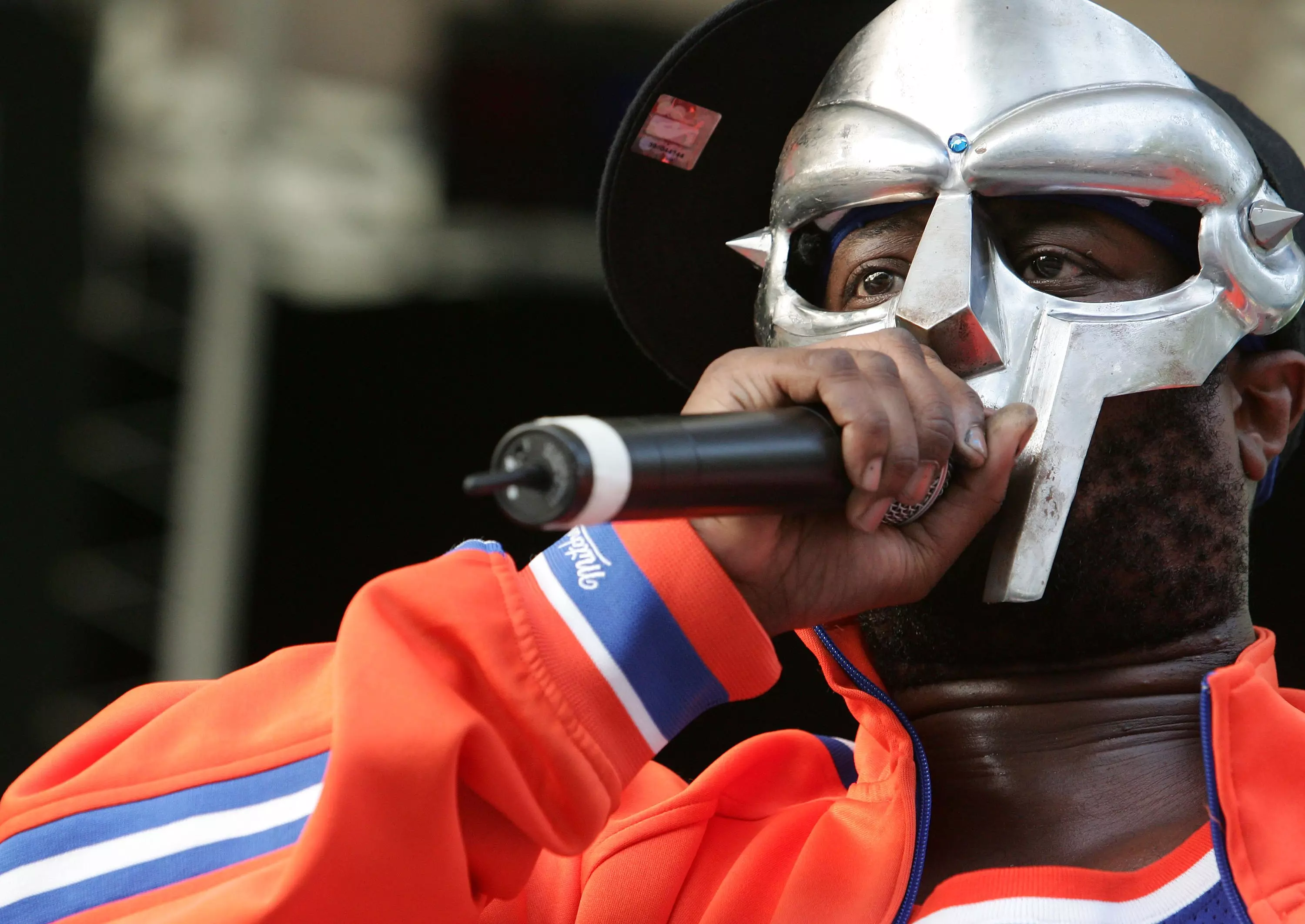
10 Facts About MF DOOM's 'Mm.Food': From Special Herbs To OG Cover Art
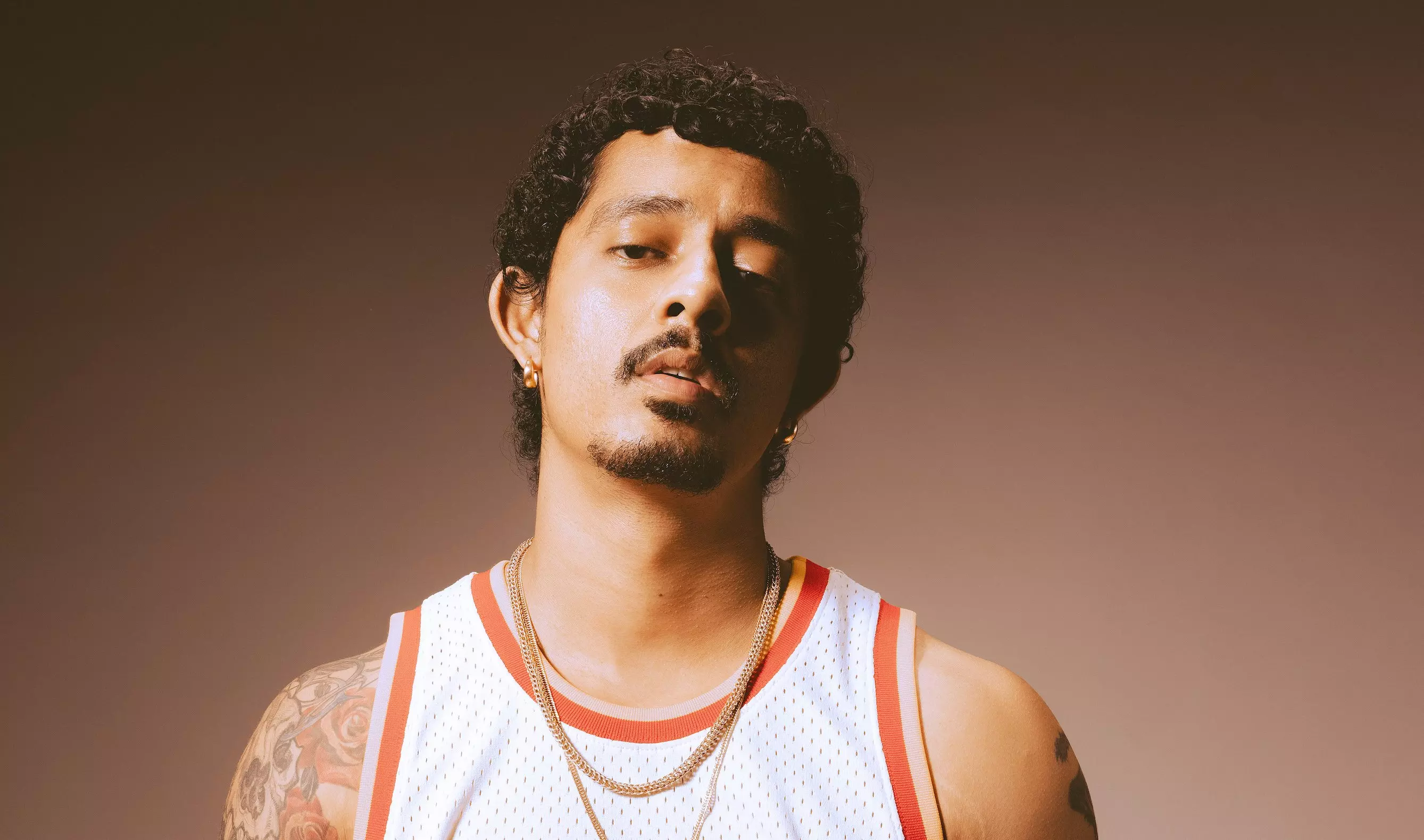
6 Indian Hip-Hop Artists To Know: Hanumankind, Pho, Chaar Diwaari & More
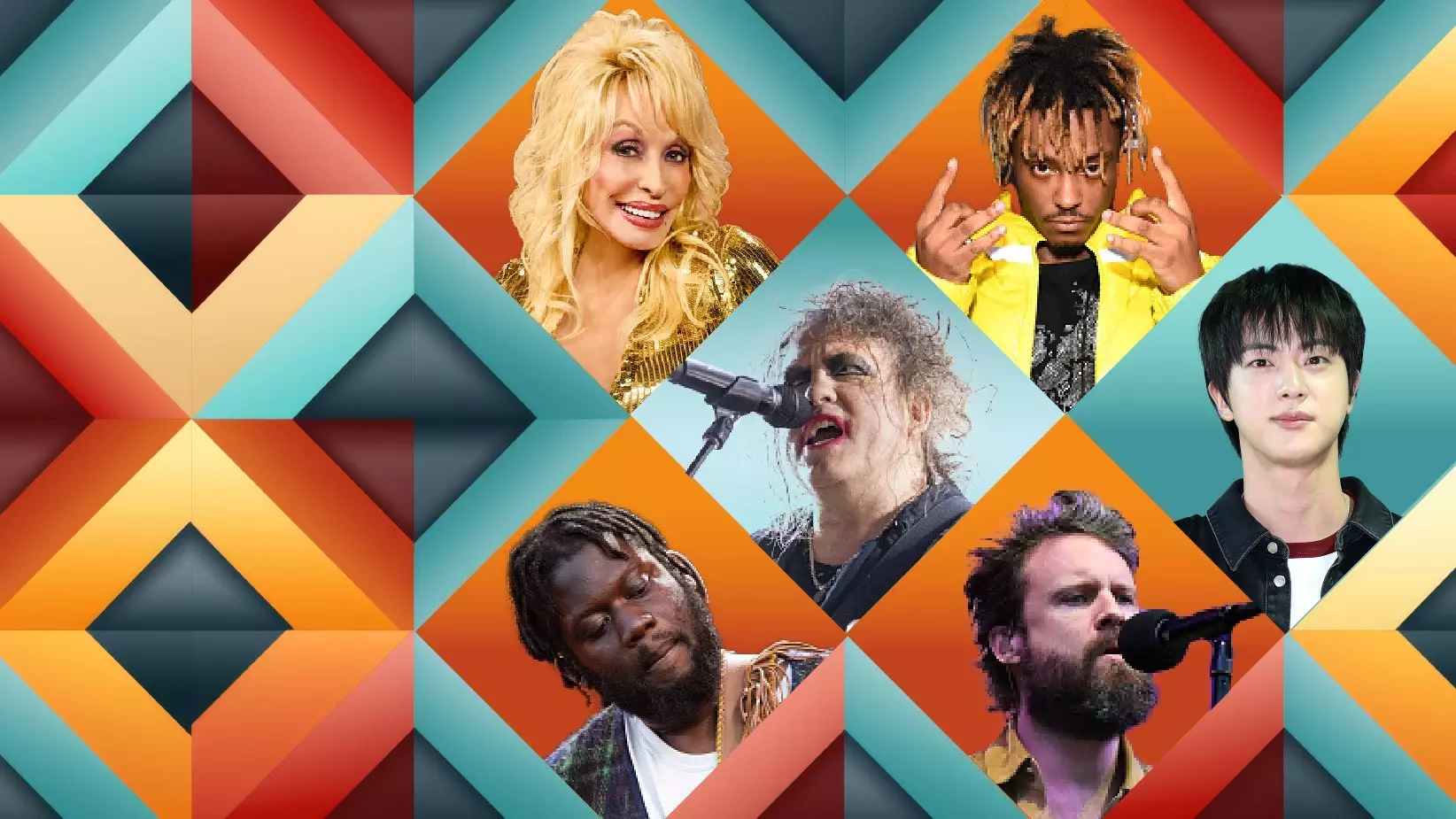
14 Must-Hear Albums In November: The Cure, Dolly Parton, Jin Of BTS, Ab-Soul, & More

Blxst Reveals His Favorite Studio Monitors
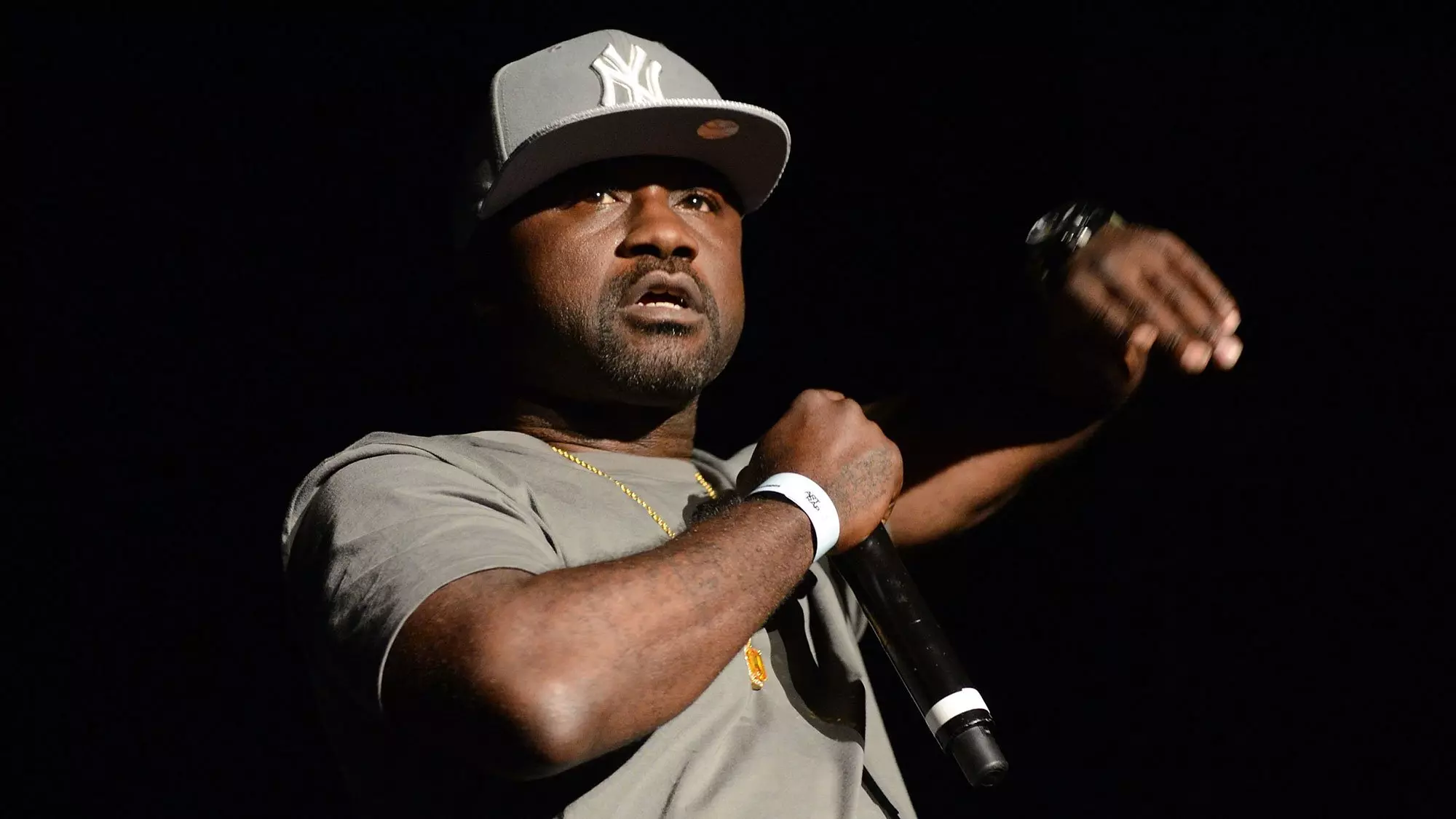
Living Legends: Havoc Talks Mobb Deep’s Legacy & The Double-Edged Life Of A Rapper-Producer
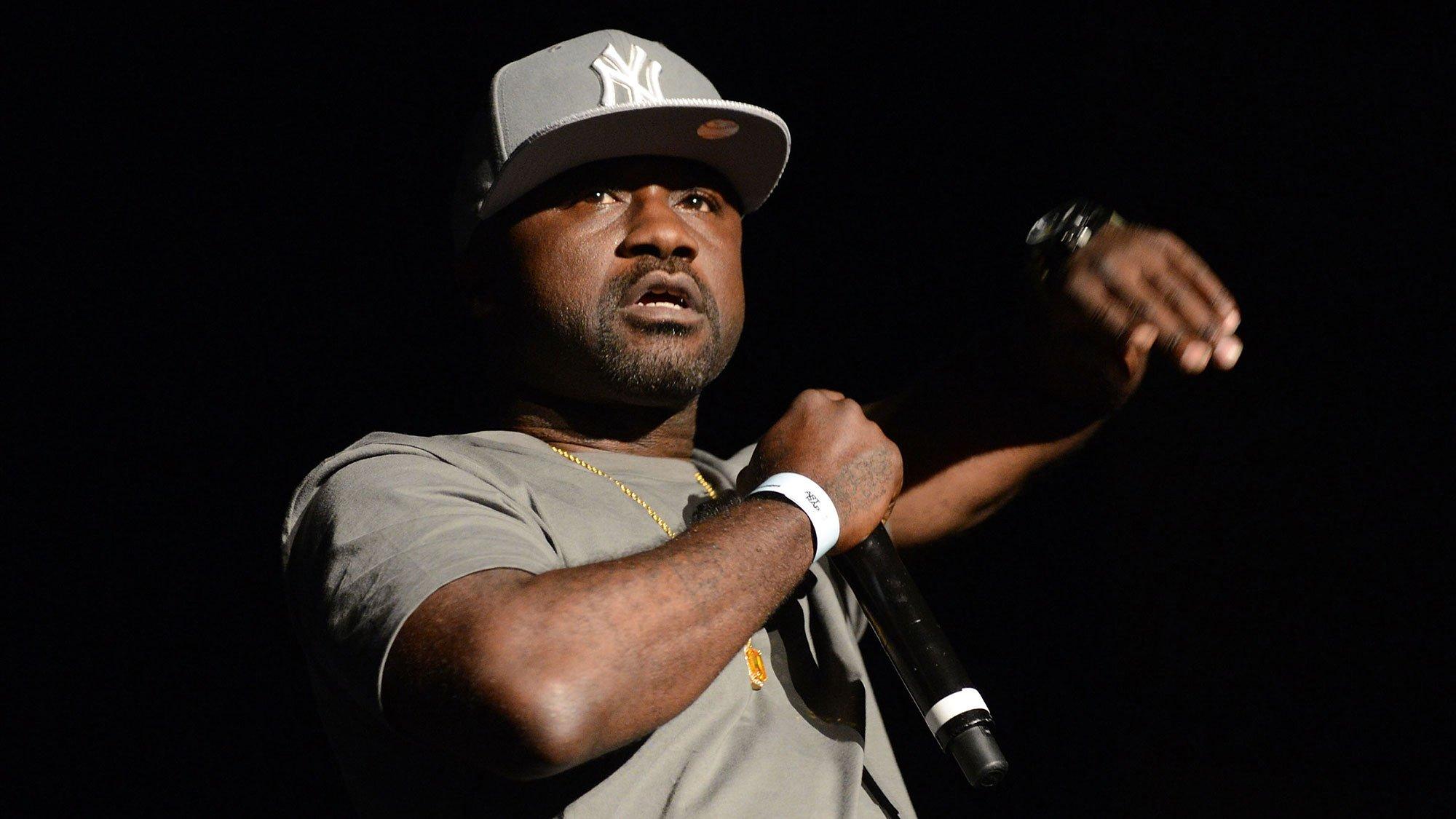
Photo: Scott Dudelson/Getty Images
interview
Living Legends: Havoc Talks Mobb Deep’s Legacy & The Double-Edged Life Of A Rapper-Producer
GRAMMY.com spoke with Havoc before Mobb Deep drops their final album featuring previously recorded lyrics from the late Prodigy and longtime producer Alchemist on Nov. 2.
Havoc is excited. The Mobb Deep MC and acclaimed industry producer is preparing to film a video with Wu-Tang Clan MC-turned-actor and Internet crush Method Man, and the thought of new music for the masses has him thrilled to pieces.
"This shit is about to be fire," he says enthusiastically. "I can't wait for everybody to check it out."
This single is dropping as part of a larger project with Method Man, which will serve as a tribute to their fallen comrades Ol' Dirty Bastard (ODB) and Prodigy, respectively. But that's not the only new music in the pipeline: after getting the blessing from his late rap partner estate, Havoc will drop the final Mobb Deep album featuring never-before-released verses from the late, great Prodigy, and production by longtime Mobb Deep producer Alchemist, on November 2nd, 2024 — on what would have been Prodigy's 50th birthday.
Born Kejuan Muchita in Brooklyn, New York, Havoc was raised in the Queensbridge Housing Project — the same place that would give the world rappers like MC Shan, Cormega, and of course, Nas — and attended the High School of Art & Design in Manhattan, where he met Albert Johnson (later known as Prodigy). There, the duo would form Poetical Prophets, which later became "The Infamous" Mobb Deep.
Havoc isn't only known for his rhymes — whether as a solo artist, notably on "American Nightmare," where he traded bars with ex-Juice Crew MC Kool G Rap, or as one-half of Mobb Deep. He's also become one of the most acclaimed producers in hip-hop, sitting behind the boards crafting tracks for Lil Wayne, 2 Chainz, and Eminem.
GRAMMY.com spoke with Havoc to talk about his new projects, his legacy with Mobb Deep, and how being both a rapper and a producer is a blessing and a curse.
This interview has been edited for length and clarity.
Let's just dive right into it. Let's talk about your new single with Method Man and your new album.
The concept of the album is to pay tribute to our loved ones who passed away — to Ol' Dirty Bastard, and to Prodigy. We thought it would be cool to do a salute to them. Method Man and I had worked together before this — and seeing that we worked together so well, you know, we decided to do it again.
With the Mobb Deep album: that's been a long time in the making. I wanted to make it years ago, but it wasn't completely my decision. I also needed to work with Prodigy's estate, and they needed time to come to terms with the idea. I gave them as much time as they needed — and of course, we hit a few bumps in the road, but nothing major. We were finally like, "It's time." It's time to continue with the Mobb Deep legacy — to remember Prodigy — and to give the supporters the music that they miss, and love, from Mobb Deep.
Alchemist was one of the people that we worked with when we did the Mobb Deep albums. We were always in contact because we were good friends — and I wanted to have him included to keep up with the Mobb Deep tradition. His inclusion is what our supporters would expect from a classic Mobb Deep album.
I wanted to explore, a little bit, what you said earlier about collaborating with Method Man to both pay tribute to your fallen comrades, and to produce new music. How much of it would you say is paying tribute to ODB and Prodigy, while educating young heads about their history — and how much of it is the "new sound" that's representative of where you two are in your careers right now?
It's equally a bit of both. We're talking about where we're at right now in our careers and our lives — we're both older now. Method Man really doesn't like to curse too much, and I understand — but I'm on there, talking my talk, as usual. Nonetheless, Method Man is in the greatest space he's ever been in, in his life.
You also have a great deal of influence in hip-hop as a producer. Some may go so far as to say that you're one of the most iconic producers of all time. From your perspective, the two-fold question is this: would you say your impact is more felt as a rapper, or as a producer? And is that your legacy, in this industry, and how you'd like to be remembered?
I believe I'm better received as a producer than as a rapper — which is kind of like a gift and a curse. It doesn't bother me too much, but I pour a lot of my heart into writing — I started as a rapper first, and did production later.
I don't know how the transition happened — how I became better known for my production work more than my rapping — but I'd love for people to know how rapping is indeed my passion, because, to me, it's tough being a rapper that writes his lyrics and does his production at the same time. That's a big leap. If you could ask any rapper that same question, they'd tell you that it's a lot to do.
I'm happy that I'm being recognized, but I'd like respect for my pen game.
Let's go back to the early years — 1991, and your appearance in "Unsigned Hype" in The Source when you started to make headway in the mixtape scene in New York. Did you recognize that you were tapping into something special, or did that recognition come later?
I think we knew we tapped into something special, whether people recognized it at the time or not. So, when the recognition from a broader audience came along, it just affirmed what we knew all along.
With "Unsigned Hype," that opened the floodgates for us. One thing led to another, we signed our first record deal, and that's when we started releasing our singles and working with Wu-Tang Clan and other artists. That's when we took hip-hop by storm. So we knew that we'd tapped into something special, and we hadn't even finished the full album yet.
Read more: The Unending Evolution Of The Mixtape: "Without Mixtapes, There Would Be No Hip-Hop"
Where did your mind go with it, once you realized that? Did that change the way you made music, from that point forward?
I believe so. We had a unique recipe, and we followed that recipe for the rest of our career. And we knew that people wanted a specific sound from us, and they wanted us. They didn't want Nas, or Big L, or even Biggie. They wanted Mobb Deep. So we never tried to be like anyone else — we just gave them us, and that was the winning formula.
How did you handle being drawn into the intense East Coast-West Coast feud, particularly after 2Pac named you in 'Hit 'Em Up'?
We were ready for it. We were prepared for war. Look, hip-hop is a contact sport. It is very competitive. So I just looked at it as a rap battle. At the time, I looked at it and thought, "Well, maybe when we see each other in person, there will be a little scuffle." We're artists — we might rap about certain things, and speak about political issues and life in the hood, but at the end of the day, we're entertainers.
I thought people had more respect for human life. I never thought it was a life-and-death game. But when it became a life-and-death game, it shook the core of my existence. I didn't like it at all. And I don't believe that anybody involved — not Pac, not Big, not anybody — deserved to lose their life over some rap beef.
It made me paranoid, and I believe I still have PTSD over it. Biggie Smalls and I share the same birthday. So it hits closer to home for me.
Did you ever get a chance to squash the beef with Pac while he was still alive?
Not at all. He died in the middle of our beef. We put a record out called "Drop a Gem on 'em" in response to "Hit ‘Em Up." We put the single on the radio — it was clear we were dissin' Pac — and, not even seven days after we first dropped the single, we found out he got shot in Vegas. And we pulled the record from the radio — purposefully.
It wasn't until maybe 20 years after the fact that we got a chance to speak with Snoop Dogg. I never thought I'd get a chance to chill around West Coast rappers, but time heals everything. Now, I'm friends with Tha Dogg Pound. I'm friends with Snoop Dogg. I'm in Los Angeles all the time. But that was way down the line.
You have to understand that when it came to Snoop, we didn't have any "beef" to squash, especially after Biggie and Pac were murdered. Once we started hanging out with West Coast artists, we knew that beef was over — and I believe the media hyped it up more than it needed to be, to be honest. No life is worth losing over some rap beef.
For a brief period, you and Prodigy weren't on the best of terms. You even engaged in a bit of a Twitter (now X) back-and-forth that left many fans — myself included — bewildered. Looking back on all of it now, what was the issue at hand, and how did you guys resolve it?
Prodigy and I have known each other for so long, we're brothers. Internally, differences were brewing — but when you're brothers, you're going to get into arguments and disagreements, but at the end of the day, you still love one another, and you're going to work things out.
It was never meant to spill over into the public. And I take responsibility for that. I expressed myself publicly at a time when I shouldn't have been near any electronic devices, you know what I'm saying? I was drinking, and you're emotional when you're drinking — but when I was sober, I realized what I was doing was wrong.
I'm not going to go on record to say what we were beefing about, but at the time, I thought it was valid. Prodigy and I squashed it a year later, though — we knew it was bad for business, plus, we'd known each other for too long to let it go on like this.
Let's touch a little bit on the G-Unit years. There's a lot that you did with the label — and you'd already had that relationship with 50 Cent before the signing. So, tell us what you learned during the G-Unit era about the business, hip-hop, and so on.
I'd begun working on a solo album, and the late Chris Lighty was my manager. He'd told me about this young dude named 50 Cent, and I heard some of his stuff and I was blown away.
I'd told Lighty that I wanted to work with Fif, and 24 hours later, I had him in my studio. At the time, he told me how much he'd admired Mobb Deep, while also hinting that he was considering working with Eminem and Dr. Dre, as they'd shown some interest. He'd even asked me what I thought he should do!
Well, my solo album never came out. Years later, when Mobb Deep got shifted around from label to label, and got dropped from Jive Records, Fif had already sold 10 million records with Get Rich or Die Tryin'. And I didn't believe that he'd even remember me — but when he heard what happened, he called me up and said he wanted to sign Mobb Deep.
Prodigy initially didn't want to do it, but he changed his mind once he sat down with 50 Cent. The rest, as they say, is history. I was so pleased to be down with a crew that had sold so many records. But a lot of our fans, at the time, was hatin' on it. They thought we'd sold out.
I don't even know where to begin with this, but: let's talk about Prodigy's death. It was a gut punch to me, and I can't imagine how it was for you. Where did you find the resolve to take on the responsibility of being the torch-bearer for all things Mobb Deep once Prodigy was gone?
I found it while I was thinking about Prodigy. I was thinking about him, and I was saying, "If God forbid, the shoe was on the other foot, he'd be moving forward." He'd be celebrating the Mobb Deep legacy. I don't think he'd want Mobb Deep to fall to the wayside. He'd be missing me like crazy, but he'd be taking Mobb Deep to the next level.
With that, I found the resolve. I then thought about the supporters, and how they deserved one last Mobb Deep project. And I'm gonna make sure that happens because I don't want to be the one that fumbled the ball just because Prodigy isn't here. I'm the one who has to make sure that the masses hear it.
And this is the last Mobb Deep album. At least, for now. There are still plenty of Mobb Deep verses to go around, but that's not for me to decide. I spoke to the estate about this album, and this album only. That's where my focus is.
So, after this final Mobb Deep hurrah, what is next for Havoc?
There are a lot of things I want to get involved with — documentaries, film scoring, getting my label off the ground, mentoring young artists — that I don't think I'll ever be bored. No, there won't be any Mobb Deep anymore, but there's still Havoc. And that's my legacy.
Latest News & Exclusive Videos
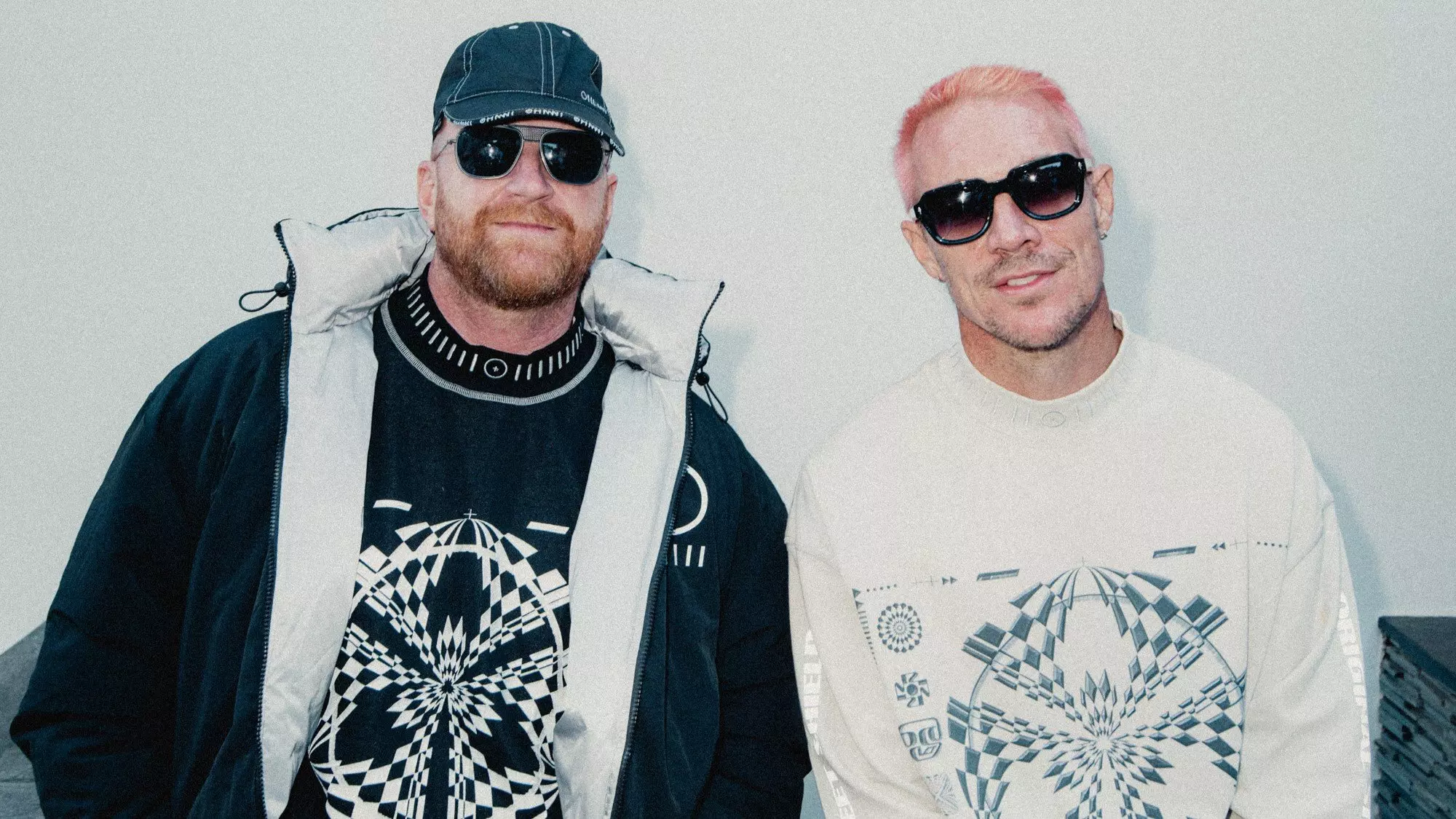
How Major Lazer's 'Guns Don't Kill People…Lazers Do' Brought Dancehall To The Global Dance Floor

YOASOBI Performs "Idol" | Global Spin
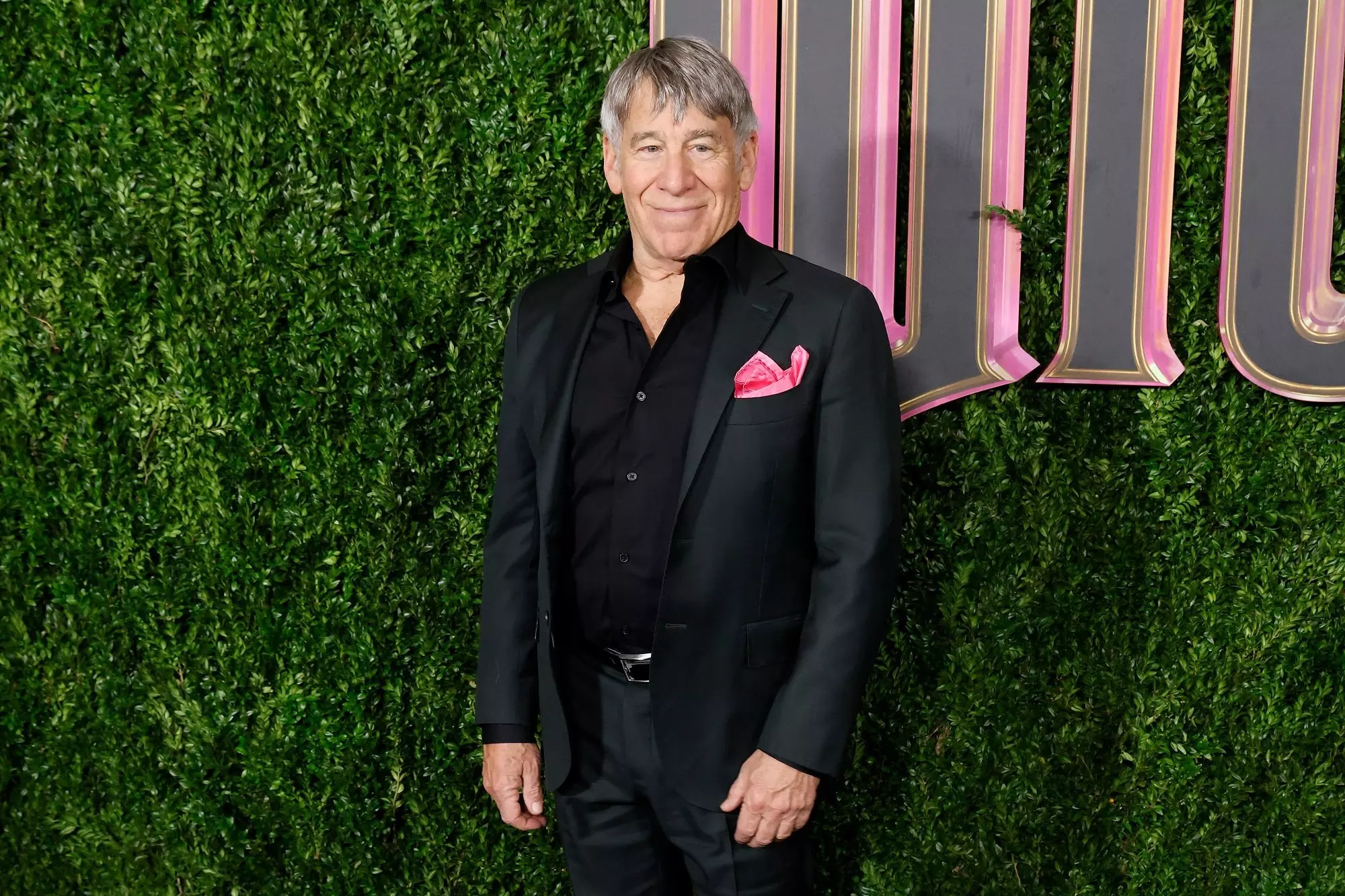
'Wicked' Composer Stephen Schwartz Details His Journey Down The Yellow Brick Road
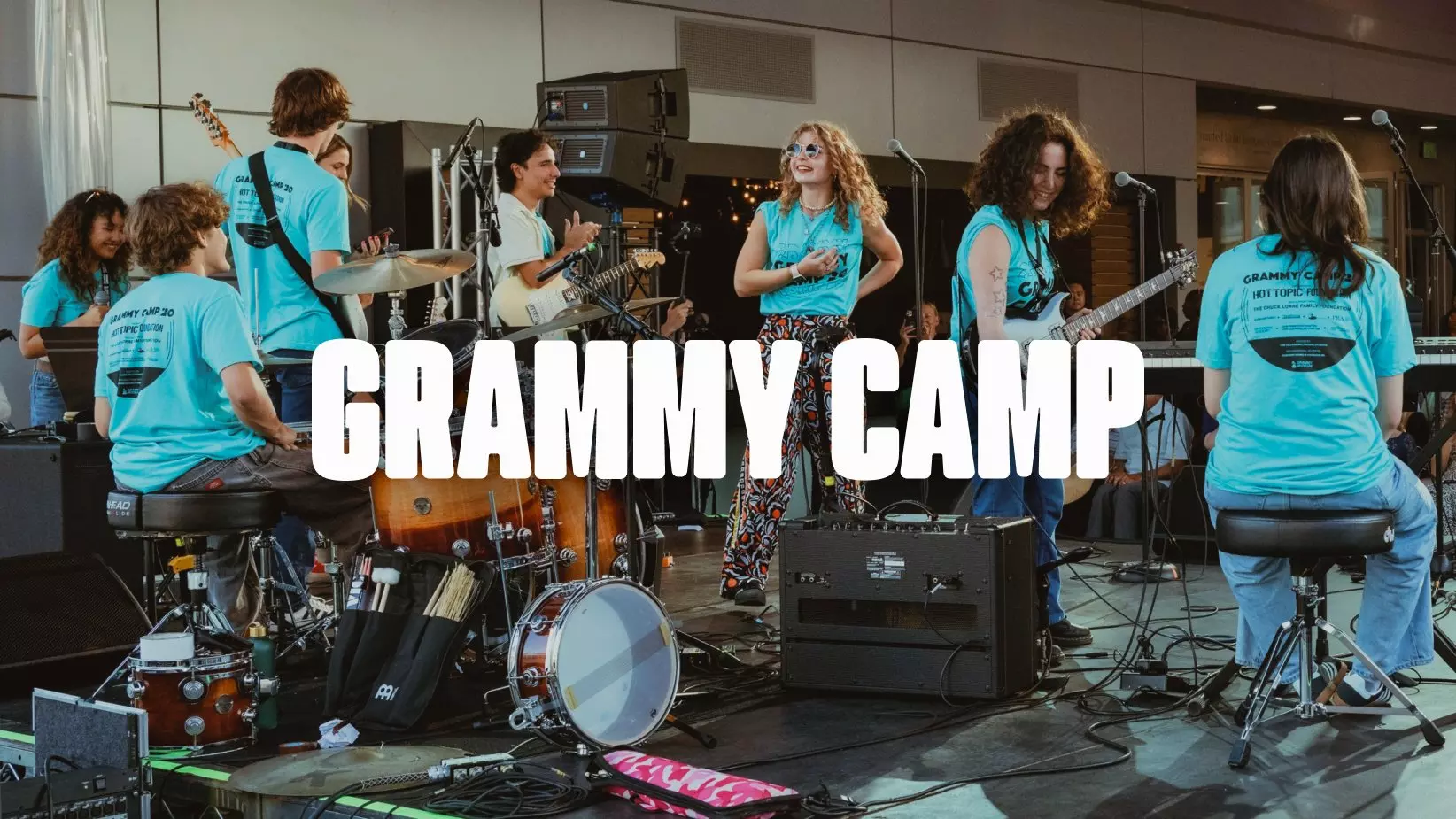
GRAMMY Museum Expands GRAMMY Camp To New York & Miami For Summer 2025
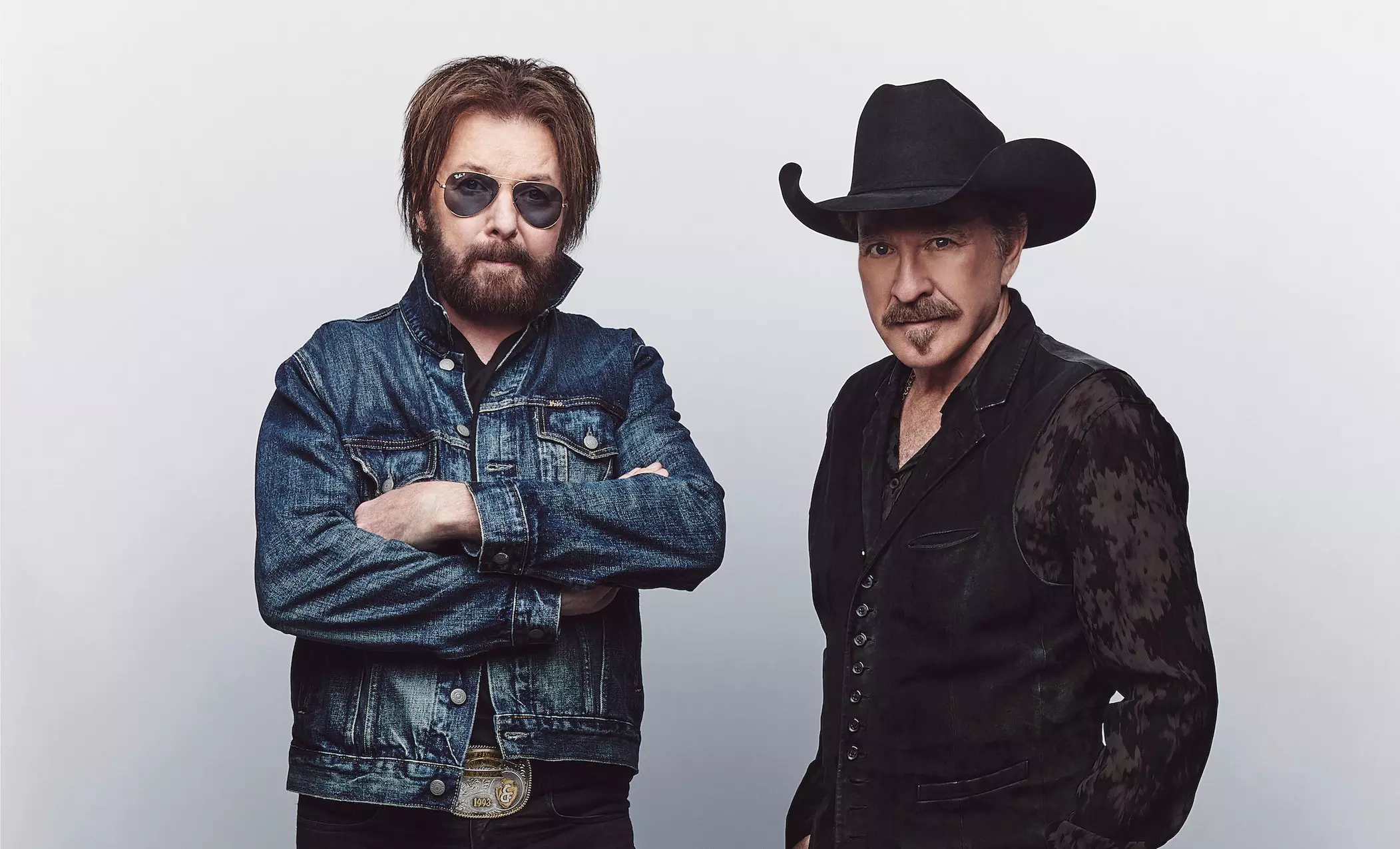
Living Legends: Brooks & Dunn On How 'Reboot II' Is A Continuation Of "Winging It From Day One"
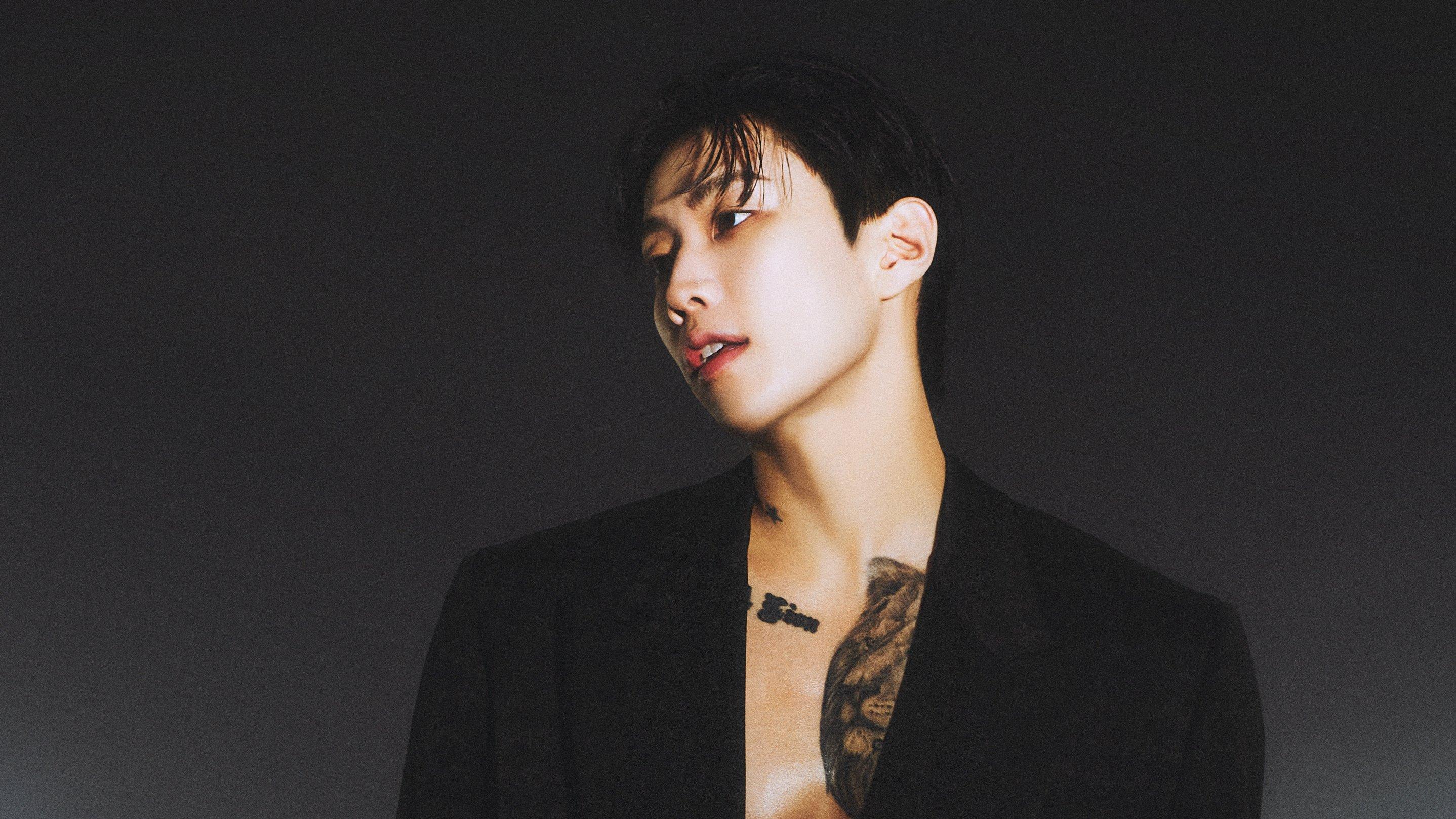
Photo: MORE VISION
feature
On 'The One You Wanted,' Jay Park Breaks Down Walls & Owns His Narrative
The K-pop idol and former industry "bad boy" details the road to 'The One You Wanted,' his first album in five years. The 20-track R&B album features Ty Dolla $ign and a host of other collaborators.
At 37 years old, the heavily tattooed, free-speaking Jay Park doesn’t exactly fit the cookie-cutter K-pop idol mold.
Sixteen years into his career — which included a stint as the fan-voted leader of hip-hop group 2PM in the 2000s, an infamous departure, and equally incredible comeback in the 2010s — Jay Park is one of the few K-pop artists who have managed to stay relevant in an increasingly saturated industry.
Now, Park is back to dispel any doubts about his longevity with The One You Wanted. Out Oct. 8, the 20-track, collab-rich R&B album is his first in five years and the result of an even longer period of creativity.
"In Korea when people hear a song, they say, 'Oh, this sounds like Jay Park.' It’s like my music has become a genre by itself," he tells GRAMMY.com.
Much like his persona, Jay Park's road to K-pop stardom has been unorthodox. Born Park Jaebom to Korean immigrant parents, Park was raised in Seattle and never felt like he fully fit into the multiple cultures he was brought up around.
He never aimed to become an artist; it was initially just a way for him to express himself. "Hip hop and R&B just became where I found my identity," he adds, citing a deep admiration for artists like Michael Jackson, Usher, and Drake.
Once he began breakdancing, rapping, and battling his friends, his mother pushed him to try out at a locally advertised talent audition. "At that time, it was just me, and mom and my brother, having money problems. We couldn’t pay the electric and water bill," he told CNN, explaining why he went for it at all. He got through, after auditioning with a rap he wrote himself (and recalled word-for-word over video call). Unbeknownst to him, the audition was for K-pop juggernaut JYP entertainment.
For a while, it seemed like Park had made it — he debuted in 2008 as the leader and main rapper of heartthrob hip-hop group 2PM. The seven-member 2PM are credited with originating a particularly masculine image in K-pop, a break from the softer "flower boy" image that other boy groups held at the time. They released two mini-albums in 2009 and were preparing for a full-length release. Things were looking good.
Exactly a year after his debut, however, Park’s star trajectory came to a screeching standstill. Moving to Korea from the US as a 17-year-old had been difficult on Park, who wasn’t fluent in the language or expectations of him as an idol. Eagle-eyed netizens spotted comments from his old Myspace posts disparaging Korea and its idol system, and in 2009, before the group released their first LP, Jay Park left 2PM.
His departure split K-pop fandoms down the middle, with large swathes defending his perspective while others decided he no longer deserved to represent Korea in a cultural space. Online searches for Jay Park exploded in the next few months, his name even topping the 2010 Oscars to take the No.1 on Twitter’s trending list in March.
Park shies away from talking about that time in his life, simply repeating over the years that he had made mistakes. "I was very ignorant and not very open-minded," he says. "I was also young, you know? It was hard, but I'm glad I went through all those periods now because it taught me a lot."
Moving back to the US, Park decided to take some time for himself. A family friend gave him a job at his tire shop, which, though a far cry from his idol days, helped him recoup after igniting endless conversations about the expectations placed on idols.
While Park was laying low, the tide had turned in Korea; the majority of K-pop fans now felt that he was too harshly judged. Fans organized silent protests and boycotted products endorsed by 2PM members. Some reportedly paid for a plane to drag a banner with the words, "J, what time is it now?" across the Seattle skies, in a reference to his band name 2PM.
Others found his church address, and started sending him gifts — including a laptop, which he used to start a YouTube channel. Park chuckles at the full circle fan moment in our interview.
His first cover in 2010 — a take on B.o.B and Bruno Mars’ "Nothing on You" recorded in his bathroom — went viral, garnering more than 2 million hits on YouTube in 24 hours. The song got so popular that B.o.B re-released the song in Korea with Park’s vocals instead of Mars’. Korean news agency Yonhap reported the song sold 5 million copies in Korea.
The cover gave Park’s music career a new lease on life, and his return to Korea in 2010 was greeted by thousands of cheering fans at Incheon airport.
It is rare in K-pop that an artist makes a comeback after leaving a company as major as JYP Entertainment. "I faced a lot of backlash," Park said in a 2023 AFP interview, adding he was once "kind of blacklisted from the industry."
Park pressed on, releasing his first EP as a soloist in 2010, which included a rearranged Korean version of "Nothin’ On You." As a solo artist, Park could now move on from his pop image towards an edgier hip-hop sound. The transition came with "a lot of trial and error," Park recalls.
"I look back on my lyrics from 2010 to about 2013, I cringe so hard sometimes," he says with a laugh. "I wasn’t great at translating my English thoughts to Korean, so some lyrics have become memes now." He also felt taken advantage of as a newcomer. "I didn't know anything about how the industry worked, and I was young and naive and didn’t have any proper representation," he says. "So many times, people came to me claiming to work at wherever or represent whoever, and I would just believe them."
Still, Park's music was taking off again. Take A Deeper Look, Park’s rap-heavy first solo Korean mini-album, debuted at No. 3 in the Billboard World Album Charts in 2011. Park established his own record label, AOMG, in 2013 and a second, H1ghr Music, in 2017.
"The reason why I made my own labels is because I wish I had someone to share these experiences or lend a helping hand or guide me to ... what I need to do with this type of fame or when stuff goes wrong," he told USA Today.
The labels house mainly hip-hop artists like pH1, Sik-K, Loco, Ugly Duck, Hoody, and former GOT7 member Yugyeom. Together, the two companies have been widely credited for leading the hip-hop presence in an otherwise pop-dominated K-pop industry.
In the meanwhile, Park’s increasingly adult-themed releases like the trap inspired, sensual "Mommaev and the more mellow, groove-centered "All I Wanna Do" racked up hundreds of millions of views, further propelling him to the forefront of K-pop’s hip-hop and R&B scene.
His rapport was only getting better internationally as well. In 2017, Park became the first Asian American to sign with Jay-Z’s label Roc Nation.
In 2018, Park's first English-language EP under Roc Nation, Ask About Me, showcased his ability to move fluidly between genres, from the trap-inspired party anthem "Soju" featuring 2Chainz to the tropical house, R&B, and trap blend "Yacht."
In 2021, Park officially stepped down from both AOMG and H1ghr Music, and established a third label called MORE VISION, representing Korean artists like Chungha and Honey J. The process took longer than expected, he says, which is why The One You Wanted is his first full-length album in five years. (Park released an introspective and uncharacteristically vulnerable The Road Less Traveled in 2019 and a mini-album titled Jay Park: Season 2 earlier this year.)
It seems as if Park has taken the whole of his experience and channeled it into The One You Wanted. Park describes the 20-track album as "easy listening" and return to his R&B roots with features from Ty Dolla Sign, Chungha, IU and Hwasa. For Park, it’s a solidification of his self-styled genre.
Although far less reflective than his last full album, The One You Wanted still showcases his progression. "Some songs are from six years ago and others I wrote just this year," he says. "You can definitely sense how the sound is different, and my voice is different."
Park hinted at retiring in 2022, but seems in no hurry to do so now. "I’ve been wanting to retire since 2012," he laughs. "When I went solo, I had to hustle a lot to survive in this cutthroat industry. To try to find out what people are into without selling myself short, it was very strenuous."
"But right now, I feel like I’m still needed in the industry."
He is not talking just about his own music or his first world tour in six years — his label MORE VISION is also planning to debut two new K-pop groups by 2026.
For Park, it’s an opportunity to hand down wisdom from everything he’s learned since that fateful JYP audition. "Getting all that attention, getting criticized all the time or getting compliments all the time, it's not normal," he says. "I just gotta make sure while [the trainees] still think I'm cool, I can get them in the right mindset and the right balance of life."
The jury’s still out on the trainees’ opinions, but based on The One You Wanted, Jay Park is set to remain cool for a long time.
Latest News & Exclusive Videos

How Major Lazer's 'Guns Don't Kill People…Lazers Do' Brought Dancehall To The Global Dance Floor

YOASOBI Performs "Idol" | Global Spin

'Wicked' Composer Stephen Schwartz Details His Journey Down The Yellow Brick Road

GRAMMY Museum Expands GRAMMY Camp To New York & Miami For Summer 2025

Living Legends: Brooks & Dunn On How 'Reboot II' Is A Continuation Of "Winging It From Day One"
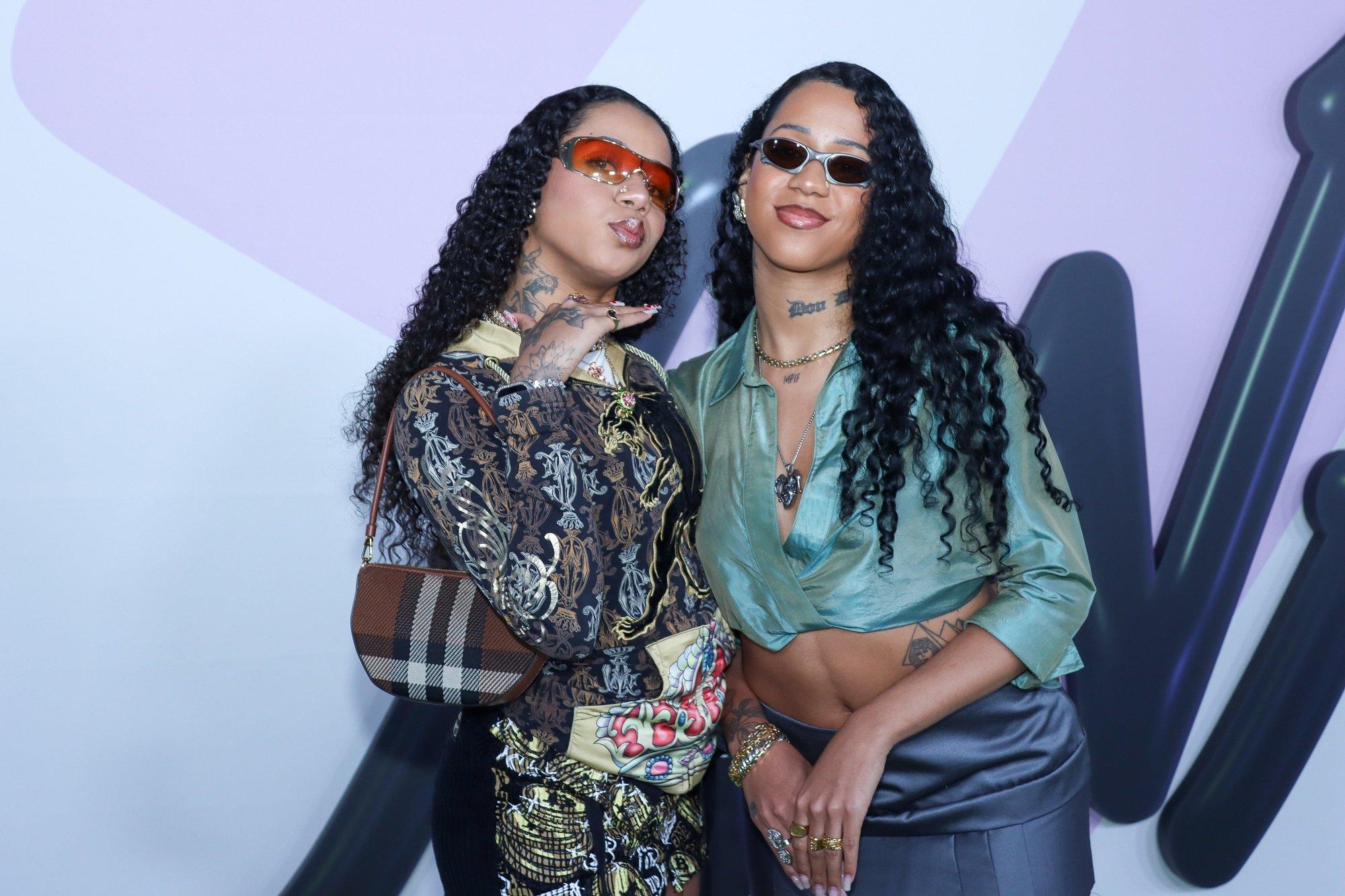
Photo: Nykieria Chaney/FilmMagic
list
10 Female Rappers Making Waves In Brazilian Hip-Hop: Duquesa, MC Luanna & More
Brazil's hip-hop scene has witnessed several female rappers claiming a space under spotlight just like male rappers. From Anna Suav to Monna Brutal, learn about the up-and-coming artists who are creating the new sound of Brazil.
Hip-hop in Brazil has always been women's turf. From pioneers like Dina Di to mainstays such as Chris SNJ, Kmila CDD, and Negra Li, female rappers have never put the mic down since first grabbing it in the early 1990s.
Yet, despite the steady growth of Brazilian hip-hop in the last decade, women are often overlooked compared to their male counterparts — some of whom lack the skill but still enjoy the fruits of fame.
This dynamic is common in many countries, such as the U.S. and England. But, like Megan Thee Stallion and Ice Spice, Brazilian rappers are rewriting the game. In recent years, names like Ajuliacosta and Tasha & Tracie have made a mark on the country's hip-hop scene; their solid releases fueled by sharp rhyming and performances loaded in artistry. These artists run a wide gamut of subgenres, exploring sounds as much as their lyrical horizons. Social issues, racism, sex, love, and anti-LGBTQ+phobia — there's a lot in their lyrical arsenal.
Read more: A Timeline Of Brazilian Hip-Hop: From The Ruas To The Red Carpet
Read on for a selection of women in Brazil's diverse hip-hop scene, a world that melds together baile funk and trap, southern beats and grime, traditional chants and fast bars. Continuing the tradition of resistance while reshaping the present and future of Brazilian hip-hop, these artists keep the mics and bars high.
Ajuliacosta
Hailing from Mogi das Cruzes, in the outskirts of São Paulo, Ajuliacosta is amongst the most relevant names of Brazilian hip-hop today. Her laidback flow and sharp pen are a statement against a rap scene used to praising ordinary speed-flow and pointless braggadocio.
AJC has performed at several festivals since her debut, 2023's Brutas Amam, Choram e Sentem Raiva. On that record, Julia moves swiftly through her personas: the loving demoiselle, the saddened girlfriend and the merciless OG. All of that is filtered by the perspective of an independent Black woman from a favela whose flow slides on bars and reiterates words to make them stronger. Self-titled a chavosa (stylish) majesty, she sings in "Queen Chavosa": "The hussle, it's us. The support, it's us. The sponsor, it's us."
Anna Suav
Suav is a stylized writing of "suave," the Brazilian Portuguese word for "smooth." Indeed, Anna Suav's voice can be quite soothing, with words that caress the listeners' ears through her R&B-laced hip-hop. But Anna can also play the warrior, a fierce bar-spitter who proudly shouts out her region, the Amazon rainforest.
On "Dengosa & Brabona" — a Jersey bounce joint released in last June featuring brega funk (a variant of baile funk) MC Rayssa Dias — Anna transforms the rapid beats into a soulful bed for her warm vocals. In "Levante," alongside fellow Northern rapper Bruna BG, she declares: "From where we come, there will be more."
Indeed, over the past decades, artists hailing from the Amazon region have been claiming more space and recognition in the South-centered Brazilian music industry. Female hip-hop artists like Anna Suav, Bruna BG, Nic Dias and Nega Ysah are leading the front.
Áurea Semiséria
Born and raised in Salvador, Bahia, Áurea is one the most versatile contenders on the rise. Her concise, but purposeful catalog showcases an artist unafraid to bend rap according to her taste. Where spitting rhymes over the modern, percussion-laden strain of samba known as pagodão or going all-out on grime beats, Áurea wastes no bar. "My flag is black, my voice is a shotgun," she fires in her performance in the YouTube channel Brasil Grime Show.
With the mic in hand, she not only claims a space for her own music but also for Bahia's hip-hop scene. The state, home to Brazil's largest Black population, has birthed several prominent rap acts, including Opanijé, Afrogueto, and Vandall.
Bione
Whether acting, writing, performing on theater stages, or improvising in an Instagram video, Bione embodies the versatility and sharpness of rap. A remarkable alumna from Slam das Minas PE — one of Brazil's most influential poetry slams — Bione is a multifaceted talent who explores hip-hop through various forms.
Born and raised in Pernambuco, a northeastern state celebrated for its cultural richness from literature to music and carnaval, Bione first arrived on the scene in 2019. On her 2022 debut album, Ego, Bione collaborated with Mãe Beth de Oxum, a pillar of local Black traditions, and fresh voices from brega funk. On the track "Deixa as Garota Brincar," she boldly declares, "[The male rappers] tried to make me afraid of them, but now they're afraid of me."
Duquesa
Duquesa, which translates to "duchess," is the title young Jeysa Ribeiro chose for herself when she set out to claim her spot among Brazilian rap royalty. She is certainly living up to the name: In just a few years, the rapper from Bahia has risen from an impromptu first performance at a book release event to becoming one of the most recognizable names in Brazilian hip-hop. Her success is underscored by her nomination for Best New International Artist at the BET Awards 2024.
Whether spitting bars over a fast-paced drill beat or gliding smoothly over an R&B groove, Duquesa embraces both the blessing and the responsibility of her growing reputation: "I don't have time (...) I'm worried about getting rich this year, everybody's asking me about my next release," she sings in "Turma da Duq" ("Duq's Crew"). Her career is guided by the legendary Mano Brown, leader of the iconic Brazilian hip-hop group Racionais MCs, a weighty association she handles with ease — her talent speaks for itself.
Ebony
Showing off an impressive style of grandiloquent bars and melodic, yet corrosive prosody, Ebony is a name that should not be forgotten. She has released two albums in the past three years, Visão Periférica (2021) and Terapia (2023) and has remained a significant presence in the hip-hop conversation. Whether through her clever pen in singles and features with up-and-coming names such as Urias and Carlos do Complexo or her talent for engaging in fiery debates within Brazilian hip-hop, she has stayed relevant.
One such debate she ignited herself in late 2023 with "Espero Que Entendam." The track is a powerful diss aimed at the top-tier male rappers in Brazil, and produced in collaboration with producer Larinhx, and their male-dominated hegemony: "I told them I have bars/if I start to spit them, they will be shocked," she rhymes.
MC Luanna
Hailing from São Paulo’s West Side, MC Luanna blends the city's downtempo, rap-infused baile funk with the rebellious spirit of classic hip-hop. The result is a modern, unique sound — a mix of antihero, rude girl lyrics delivered with a laid-back flow.
In her 2022 album 44, MC Luanna paints a sharp portrait of a young Black woman navigating the challenges of São Paulo. With precise rhymes, she seamlessly weaves together themes of hedonistic love, loyal friendships, and outshining her rivals with her skillful lines.
Monna Brutal
When Monna Brutal raps, it's time to learn. In her arsenal, you'll find a feverish pace and sharp wordplay, along with laid-back phrasing and tongue-in-cheek punchlines.
Born in Guarulhos, on the outskirts of São Paulo, Monna Brutal has been paving a solid path in Brazilian hip-hop. Her four albums (from 2018's 9/11 to the 2024's Vista Grossa) showcase an artist confident in her power. Monna tackles fake stars, social issues, and LGBTQIA+ discrimination with the same gnarly bite. In "Hashtag," she spits a fiery warning: "If you try to beat me up, you'll be my next track."
Slipmami
Showing off a Slipknot t-shirt on her TikTok account, flaring neon-colored laces on a music video, and keeping her fancy nails always sharp, Slipmami won't go unnoticed. And clothing is just a piece of the puzzle she brings to the table. The Rio de Janeiro rapper is a blend that only hip-hop could create: a cross-pollination of anime characters and precise, lascivious lines.
Her 2023 debut album, Malvatrem, is a fierce statement from a girl who knows what she wants — both in bed and in the streets. She rhymes over finger-snapping beats, dirty South jams, baile funk drums, and grim chords. Whether on tight tempos or loose trap vibes, Slipmami spares no bars and no one.
Tasha & Tracie
Brazilians of Nigerian descent, twin siblings Tasha and Tracie have been stirring up Brazilian street culture for a couple of years. They first emerged into the hip-hop world in the mid-2010s as bloggers who praised Brazilian favela sartorial style as much more than a trend — it was a lifestyle. They were right, and in 2021 they brought their life experiences to music with their debut, Diretoria.
The album sent shockwaves through Brazil's hip-hop scene, showcasing a duo that could deliver abrasive lines and mellow double entendres, straightforward jabs, and clever wordplay. Since then, the sisters have kept their pen and mic busy via features and collaborations, such as the gritty "Drop da Santa"—a nod to São Paulo favela kids who wear Santander/Ferrari garments exclusively.
Latest News & Exclusive Videos

How Major Lazer's 'Guns Don't Kill People…Lazers Do' Brought Dancehall To The Global Dance Floor

YOASOBI Performs "Idol" | Global Spin

'Wicked' Composer Stephen Schwartz Details His Journey Down The Yellow Brick Road

GRAMMY Museum Expands GRAMMY Camp To New York & Miami For Summer 2025

Living Legends: Brooks & Dunn On How 'Reboot II' Is A Continuation Of "Winging It From Day One"
